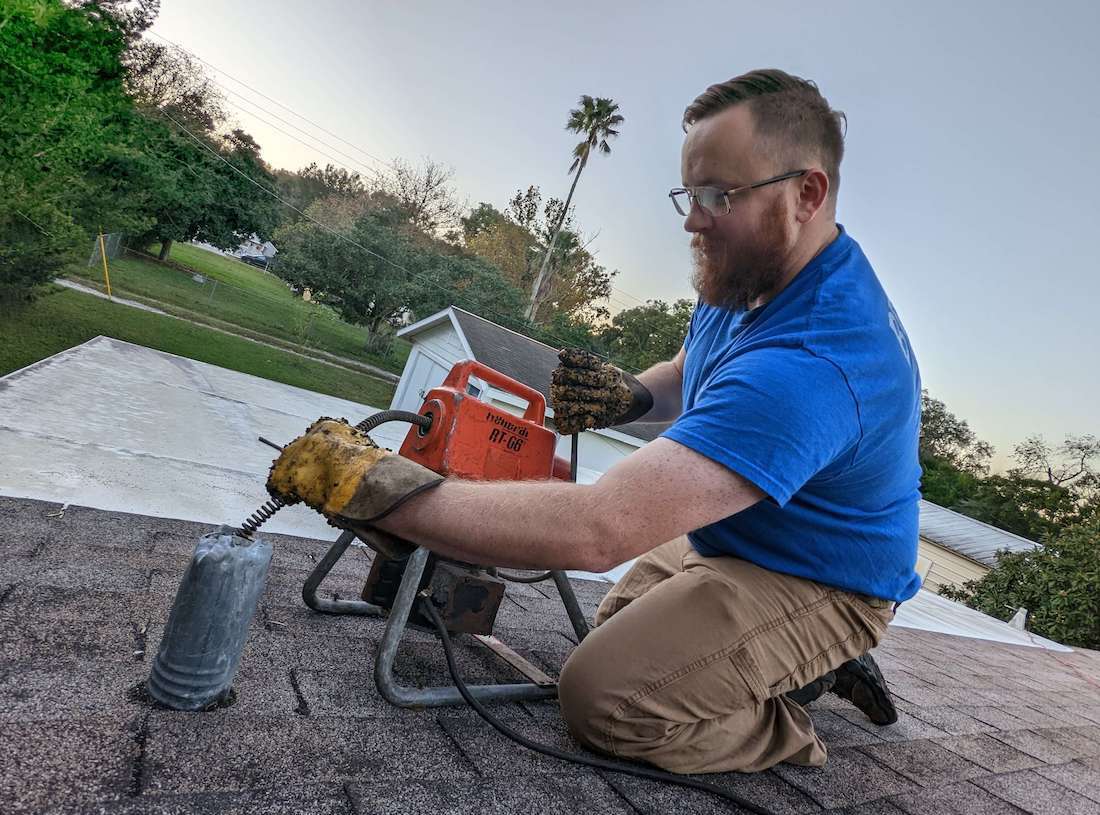Advice for training to operate drain cleaning equipment
Manufacturers usually have a wealth of knowledge, including instructional videos and training programs, that can help companies with training to safely operate drain cleaning equipment. In addition to manufacturers, area reps, as well as the wholesalers and distributors that sell and support drain cleaning equipment, are another great source for training, especially for one-on-one training in the field.
Often, learning best is by example, by watching somebody else and successfully mimicking them. No need to be apprehensive as drain cleaning equipment is relatively safe and easy to learn. While blockages can be a common issue, having the right drain cleaning tool can make all the difference.
Drain cleaning is not rocket science. The fundamentals of the skill can be understood in minutes and mastered in hours. The learning curve for drain cleaning effectively slopes upward for years after the initial experience, but acceptable levels of proficiency can safely be acquired on the first day of training.
We recommend that plumbers purchase drum cleaning machines with a power feed and a guide tube (which effectively separates the users from the cable) for ease of use and safety by novices. A modern drum style cleaning machine makes it safer and easier to learn on; users simply let the rotation of a cable slowly get through the obstruction, paying attention to notice when the cable encounters resistance and easing up, going back and forth until the cable makes its way through. From clogged sinks to clogged toilets, the right cleaning equipment is essential.
What should a drain cleaning training program include?
One of the most important aspects of drain cleaning is to first understand the right drain cleaning machine for the job. There are small, medium and large drains. Small drains would be drains from sinks, tubs, showers that range from 1-1/4″ to 3″ lines in North America. Medium drains would be indoor drains that connect two or more small drains. Large drains would be those drains that run from a building to outside, either to the sewer system or municipal water or wastewater supply.
A small drain requires a small cable. Small cables are housed in small machines, engineered to efficiently clean out small drains, like General Pipe Cleaners’ Super-Vee®.
Medium-sized drains are addressed with medium cables housed in medium machines, like General Pipe Cleaners’ Mini-Rooter Pro® or Mini-Rooter XP®.
Large drains require larger-sized cables housed in large machines that are capable of breaking through roots, one of the hardest obstructions that cables face, like General Pipe Cleaners’ Speed-Rooter®. General Pipe Cleaners also offers tools like the kinetic water ram which can be a game-changer in tackling tough clogs.
Finally, there is the special case of clogged toilets or commodes. If a toilet is backed up, and a plunger won’t do the job, a closet auger would be the right tool for the job. It’s a snake that’s designed to be carefully put into the toilet that will go around tight corners and remove any obstruction that might be there.
Besides understanding the right machine for the job, it’s important that the training includes different types of equipment, how-to-videos and instructional videos. As a professional, it’s vital that plumbers understand the equipment they will be working with, the functions and how to maintain maintenance on the products. Utilizing informational videos in your program ensures that the trainees retain the material, and the videos could be watched back at a later point. Videos are also great to watch as a starting point then show the demonstration in-person. Maintenance of your cleaning tools ensures longevity and efficiency in drain and sewer cleaning.
Optimizing Drain Cleaning Training
Effective training goes beyond merely knowing the tools; it equips professionals to anticipate and handle challenges, from laundry drain clogs to unexpected tub blockages. Essential topics include the distinctions between using sectional machines and hand tools, as well as mastering tools like the kinetic water ram. Continuous updates are vital as cleaning tools and methods evolve. General Pipe Cleaners emphasizes this by offering thorough guidance with their products, reinforcing that consistent training ensures safety, proficiency, and optimal results on the job.
Having the proper training for drain cleaning equipment is important, so make sure to cover all aspects of it in training.
Questions? Call the Drain Brains at 800-245-6200.
